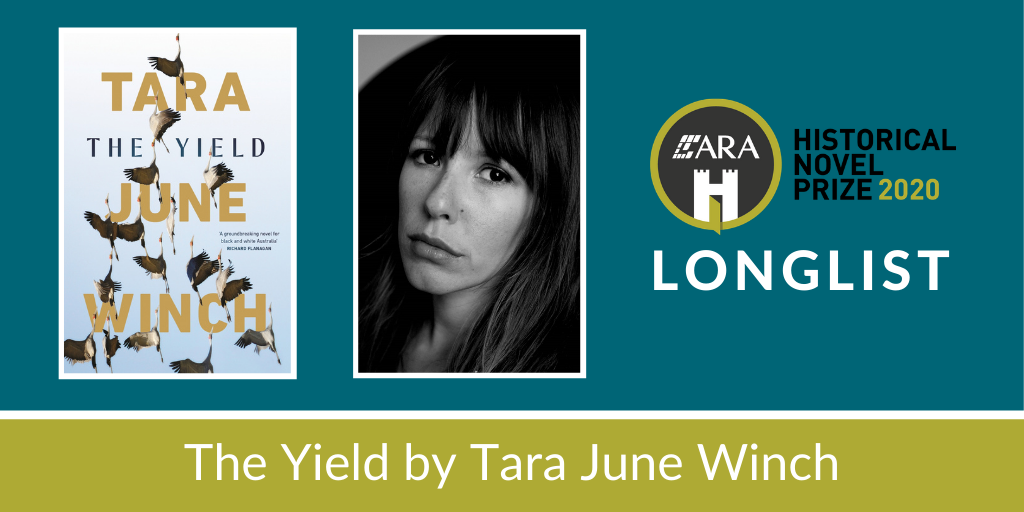HNSA, in partnerships with ARA Group, recently announced the eight talented authors, and their outstanding novels, selected in the 2020 longlist for the inaugural ARA Historical Novel Prize. The Yield by Tara June Winch was one of the novels featured in the longlist. We chat with Tara below about what being longlisted means to her and why awards like this are important. You can also enjoy Tara reading an excerpt from her book via the HNSA Youtube channel where you’ll find readings from all the longlist authors.
Bringing together Indigenous Australian history, the Wiradjuri language, the tragedy of dispossession and its consequences, The Yield is a powerful elegy for what has been lost and a testament to the strength of what survives. ~ Paula Morris

What does being longlisted mean to you?
“Being longlisted for the Historical Novel Prize is such a great honour, particularly because the truth that I’ve written about was denied from the declarations of Australian history for so long. I’ve realised in the writing of this novel, and the response from readers, that truth telling is always necessary in any age, that’s it is always relevant to know where we have come from, that our past is entwined with our present – and only by knowing our history will we be conscious to try not to repeat it.”
Why do you think awards like this are important?
“Awards like the ARA Historical Novel Prize are important because they flag a genre that can be buried by the commercial world of contemporary fiction. The award pays homage to the past, and has the ability to highlight parts of our history that may not be in the public discourse. It’s an exciting prize to be part of for that reason, to see what great stories of the past have been reimagined and unearthed.”
About Tara June Winch
Tara June Winch is a Wiradjuri author, born in Australia in 1983 and based in France. Her first novel, Swallow the Air was critically acclaimed and won numerous literary awards. In 2008, Tara was mentored by Nobel Prize winner Wole Soyinka as part of the prestigious Rolex Mentor and Protégé Arts Initiative.
Her second book, the story collection After the Carnage was published in 2016, and was longlisted for the Victorian Premier’s Literary Award for fiction, and shortlisted for the 2017 NSW Premier’s Christina Stead Prize for Fiction and the Queensland Literary Award for a collection. She wrote the Indigenous dance documentary, Carriberrie, which screened at the 71st Cannes Film Festival and toured internationally. The Yield won the 2020 Miles Franklin Literary Award, Christina Stead Prize for Fiction, the People’s Choice Award and Book of the Year at the 2020 NSW Premier’s Literary Awards.
For more information:
About The Yield
In English, the yield is the reaping, the things that man can take from the land. In the language of the Wiradjuri yield is the things you give to, the movement, the space between things: baayanha.
Knowing that he will soon die, Albert ‘Poppy’ Gondiwindi takes pen to paper. His life has been spent on the banks of the Murrumby River at Prosperous House, on Massacre Plains. Albert is determined to pass on the language of his people and everything that was ever remembered. He finds the words on the wind.
August Gondiwindi has been living on the other side of the world for ten years when she learns of her grandfather’s death. She returns home for his burial, wracked with grief and burdened with all she tried to leave behind. Her homecoming is bittersweet as she confronts the love of her kin and news that Prosperous is to be repossessed by a mining company.
Determined to make amends she endeavours to save their land – a quest that leads her to the voice of her grandfather and into the past, the stories of her people, the secrets of the river.
The ARA Historical Novel Prize shortlist will be announced on Wednesday, 28 October, with the prize winner to be announced by both video broadcast and live stream in Sydney on the evening of Tuesday, 10 November 2020.




